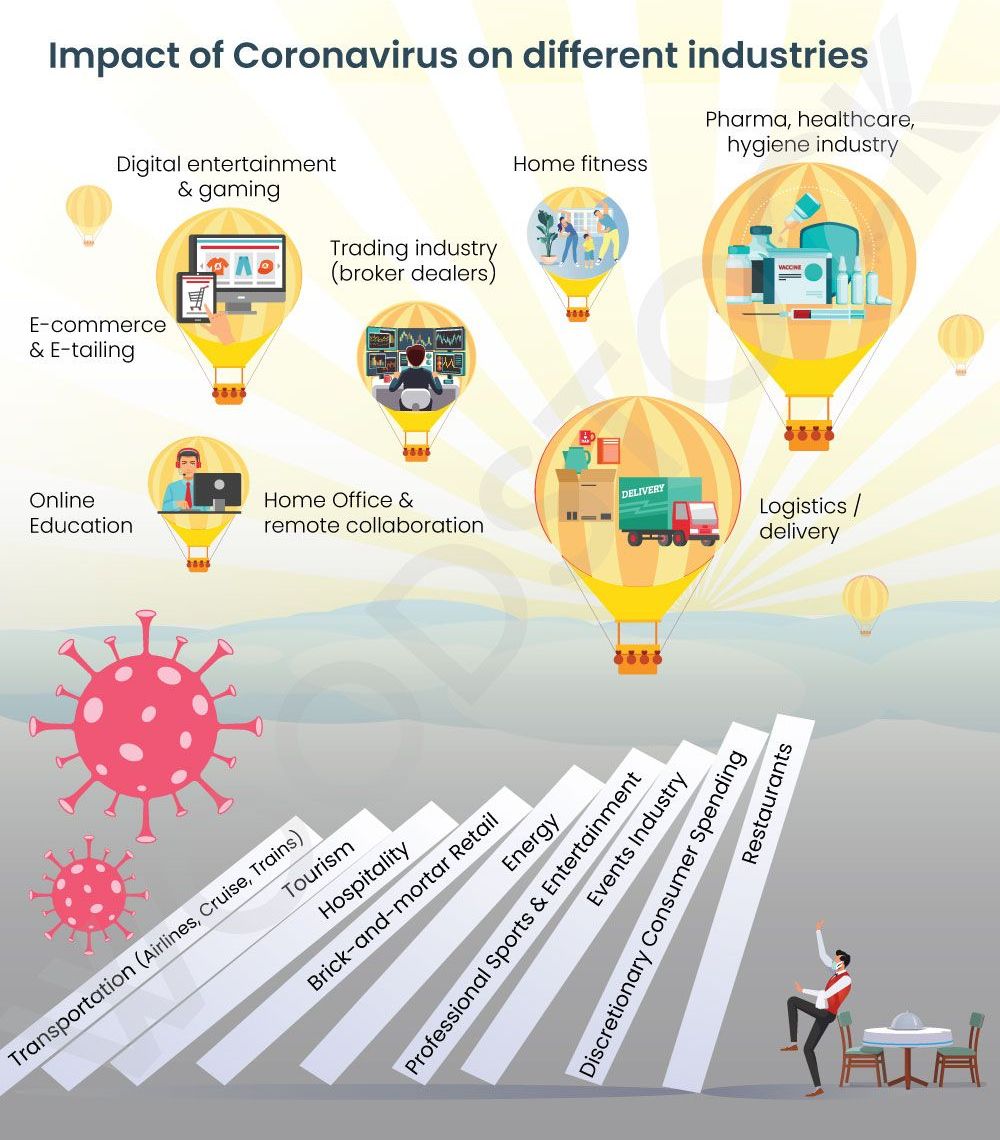“The main purpose of the stock market is to make fools of as many men as possible.”–Bernard Baruch.



The choices we make today, and it’s consequences will shape up this decade. Can we break the current pattern, engage with this new financial system and adapt to new realities? #blockchain
As human beings, we are defined by patterns. Our collective pattern defines society. We are empowered with choices – furthering the patterns, or breaking them or creating new ones. In the physical world, these choices could be social, economic, technological, or ecological. Based on the choices we make – good, bad, or ugly, we enjoy or suffer consequences. COVID-19 escalated the macroeconomic situation leading to liquidity, demand, and supply shocks. Can we break the current pattern and embrace digitization, decentralization and sound money? In turn, making choices that will create affirmative consequences for humanity.
Patterns, Choices & Consequences
On the late evening of 5th July 2004, one of our core team members was driving on Mumbai – Pune highway in a Maruti 800, after an offsite monthly sales review in Mumbai (India). He had to be in Pune for an early morning sales leadership training program. It was getting dark and he was trying his best to get out of Mumbai traffic onto the expressway. Once he reached the expressway, he felt it would be a breeze to get to Pune. This was his usual circuit and he was cruising at about 80 km per hour (not high speed or rash driving by any standards). He was ambitious. Past midway the weather conditions suddenly changed and it started pouring with no visibility beyond two feet. He pushed the accelerator trying to overtake a bus. He hadn’t bothered to check that the tyres were worn out and there was mud sludge on the road. He was ill-prepared and complacent. This lethal combination made his car lose control, spinning and toppling and diving next to a waterlogged canal.

There is an interesting case of a blockchain engineer and a crime in the article.
A district court in China has reportedly ruled that Ethereum’s cryptocurrency is legal property with economic value. This ruling follows a couple of other verdicts on the legality of cryptocurrency, including bitcoin, by various Chinese courts. While cryptocurrency is not legal tender in China, people can hold and transfer them like property.
The Shenzhen Futian District People’s Court in Guangdong Province, China, has ruled that ether is legal property, protected by Chinese law, local media reported last week. This means that the Chinese are not barred from owning or transferring the cryptocurrency, local publication 8btc explained, adding that according to the court ruling:
The crypto assets represented by ETH have economic value and can be traded publicly.
Renewable sources including solar, wind and hydropower generated more electricity than coal-based plants every single day in April, a new report says.
Analysis shared by the Institute for Energy Economics and Financial Analysis (IEFA), based on data from the U.S. Energy Information Administration (EIA), said the finding marks a major “milestone” in an energy transition that is now underway.
The move away from coal for electricity generation in the U.S. accelerated in 2020 due to lower gas prices, warmer weather and a “significant amount” of new renewable capacity being connected to the grid late last year, the report suggested.

MANITOWOC COUNTY (WLUK) — Fewer drivers on the road, means fewer and fewer people are filling up their tank. “With consumers are staying at home and the economy in troubled waters, I think that’s kind of the best summary. People are just not driving,” said GasBuddy Head Petroleum Analyst Patrick De Haan. At one point Friday morning, the Francis Creek Shell station was selling the cheapest gas in the country at just 75 cents a gallon.

There is widespread agreement that the only way to safely reopen the economy is through a massive increase in testing. The US needs to test millions of people per day to effectively track and then contain the covid-19 pandemic.
This is a tall order. The country tested only around 210,000 people per day last week, and the pace is not increasing fast enough to get to millions quickly.
The urgency to do better is overwhelmingly bipartisan, with the most recent legislation adding $25 billion for testing a few days ago. Fears are growing, however, that testing might not scale in time to make a difference. As Senators Lamar Alexander and Roy Blunt wrote last week, “We have been talking with experts across the government and the private sector to find anyone who believes that current technology can produce the tens of millions of tests necessary to put this virus behind us. Unfortunately, we have yet to find anyone to do so.”

“According to WAM, stem cells are extracted from the patient’s blood and then reintroduced in an “activated” state to the lungs through inhalation after being nebulized into a fine mist.
ADSCC researchers said the mist had a therapeutic effect, helping to regenerate lung cells and alter the response of the immune system to stop it from overreacting to the COVID-19 infection and causing more damage to healthy cells.
The treatment has undergone and successfully passed the first stage of clinical trials with further tests to demonstrate its effectiveness being carried out over the next two weeks.”
LONDON: An aerosol treatment for the coronavirus disease (COVID-19) developed by a team of doctors and researchers in the UAE had shown “promising” results, the Emirates News Agency (WAM) reported on Friday.
The treatment was given to 73 patients suffering with COVID-19 in the UAE and all of them went on to make a complete recovery.
The Emirati Ministry of Economy said on Friday it had granted a patent to the Abu Dhabi Stem Cell Center (ADSCC) to develop the treatment further through the use of stem cells.

What are some of ways that technology can be used to combat things like racism, bipartisan politics, Islamophobia, antisemitism, and extreme prejudice? Especially when these things are systemically embedded in certain cultures to the point that rationality seems to fly out the window? I see conversations on social media in peaceful international groups such as this one as a great potential stepping stone to mediate the tension between groups who seem to be devoted to blind hatred for one another. What are some other ways technology can advance social and political sciences?
“This article analyzes the narratives of Islamophobia in Hindu Nationalism (Hindutva). Specifically, it analyzes how Indian Prime Minister Narendra Modi, from the Hindu nationalist Bharatiya Janata Party (BJP), articulates Islamophobia in his speeches, interviews, and podcasts. In total, a discourse analysis of 35 such documents has been conducted. Conceptually, this article applies the notion of language-games to understand how Modi articulates Islamophobia. The article contends that while Modi’s Islamophobia is executed subtly, it is nonetheless a function of the way in which Hindutva conceives of Muslims as subordinate to Hindus. Two Islamophobic narratives in Modi’s political discourse have been mapped out: the erasure of Indian Muslim histories in Modi’s economic development agenda, and the characterization of Hinduism as having a taming effect on Islam in India. The article provides a conceptual overview of language-games and a review of how Hindutva defines Hindus and Muslims, before analyzing how Modi articulates Islamophobia. The article concludes by suggesting that a Hindutva-driven Islamophobia may have permeated into the Hindu mainstream.”

Investment in the fast-growing space industry was booming well into the first quarter of 2020 but private capital has largely frozen as the coronavirus pandemic strikes the U.S., leading both civil and military agencies to step up funding for corporate partners.
“We kicked into high gear as soon as it was apparent a lot of companies were not going to be able to conduct business as usual due to distancing requirements,” Mike Read, International Space Station business and economic development manager at NASA’s Johnson Space Center, told CNBC.
U.S. equity investment in space companies totaled $5.4 billion across 36 deals in the first quarter, according to a report Friday by NYC-based firm Space Capital. But the second quarter is likely to just see a fraction of that investment, according to Space Capital managing partner Chad Anderson, as deal flow in the U.S. will follow China’s path. Chinese investment in space was climbing by record amounts until the first quarter, when “activity in China was basically shut off,” Anderson said.
Ira Pastor, ideaXme life sciences ambassador, interviews Dr. Stanley Plotkin, Professor Emeritus at both Wistar Institute and the University of Pennsylvania and consultant to the vaccine industry.
Ira Pastor Comments:
So as we sit here a few months into the global covid-19 pandemic, one big question on everyone’s mind is when will we see the first mass produced vaccine against this current strain, especially as it looks like in the United States there will be some loosening of quarantine / “shelter in place” rules in the to re-start the economy.
Dr. Stanley Plotkin is an American physician, scientist, and scholar, in many circles referred to as the Godfather of Vaccines”, who in the 1960s, while working at Wistar Institute in Philadelphia, played a pivotal role in discovery of a vaccine against Rubella virus (also known as German measles or three-day measles), which is now used worldwide (as a key component of the MMR vaccine — a combination vaccine also that protects against measles and mumps) and has worked extensively on the development and application of a wide range of other vaccines including polio, rabies, varicella, rotavirus and cytomegalovirus.
Dr. Plotkin graduated from New York University in 1952 and obtained a medical degree at Downstate Medical Center in Brooklyn. He was a resident in pediatrics at the Children’s Hospital of Philadelphia and at the Hospital for Sick Children in London.